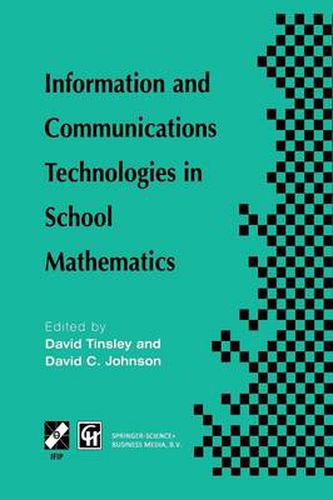Readings Newsletter
Become a Readings Member to make your shopping experience even easier.
Sign in or sign up for free!
You’re not far away from qualifying for FREE standard shipping within Australia
You’ve qualified for FREE standard shipping within Australia
The cart is loading…






This title is printed to order. This book may have been self-published. If so, we cannot guarantee the quality of the content. In the main most books will have gone through the editing process however some may not. We therefore suggest that you be aware of this before ordering this book. If in doubt check either the author or publisher’s details as we are unable to accept any returns unless they are faulty. Please contact us if you have any questions.
The International Federation for Information Processing, IFIP, is a multinational federation of professional technical organisations concerned with information processing. IFIP is dedicated to improving communication and increased understanding among practitioners of all nations about the role information processing can play in all walks of life. This Working Conference, Secondary School Mathematics in the World of Communication Technologies: Learning, Teaching and the Curriculum, was organised by Working Group 3.1, Informatics in Secondary Education, ofiFIP Technical Committee for Education, TC3. This is the third conference on this theme organised by WG 3.1, the previous two were held in Varna, Bulgaria, 1977, and Sofia, Bulgaria, 1987-proceedings published by North-Holland Elsevier. The aim of the conference was to take a forward look at the issue of the relationships between mathematics and the new technologies of information and communication in the context of the increased availability of interactive and dynamic information processing tools. The main focus was on the mathematics education of students in the age range of about ll to 18 years and the following themes were addressed: * Curriculum: curriculum evolution; relationships with informatics; * Teachers: professional development; methodology and practice; * Learners: tools and techniques; concept development; research and theory; * Human and social issues: culture and policy; personal impact.
$9.00 standard shipping within Australia
FREE standard shipping within Australia for orders over $100.00
Express & International shipping calculated at checkout
This title is printed to order. This book may have been self-published. If so, we cannot guarantee the quality of the content. In the main most books will have gone through the editing process however some may not. We therefore suggest that you be aware of this before ordering this book. If in doubt check either the author or publisher’s details as we are unable to accept any returns unless they are faulty. Please contact us if you have any questions.
The International Federation for Information Processing, IFIP, is a multinational federation of professional technical organisations concerned with information processing. IFIP is dedicated to improving communication and increased understanding among practitioners of all nations about the role information processing can play in all walks of life. This Working Conference, Secondary School Mathematics in the World of Communication Technologies: Learning, Teaching and the Curriculum, was organised by Working Group 3.1, Informatics in Secondary Education, ofiFIP Technical Committee for Education, TC3. This is the third conference on this theme organised by WG 3.1, the previous two were held in Varna, Bulgaria, 1977, and Sofia, Bulgaria, 1987-proceedings published by North-Holland Elsevier. The aim of the conference was to take a forward look at the issue of the relationships between mathematics and the new technologies of information and communication in the context of the increased availability of interactive and dynamic information processing tools. The main focus was on the mathematics education of students in the age range of about ll to 18 years and the following themes were addressed: * Curriculum: curriculum evolution; relationships with informatics; * Teachers: professional development; methodology and practice; * Learners: tools and techniques; concept development; research and theory; * Human and social issues: culture and policy; personal impact.